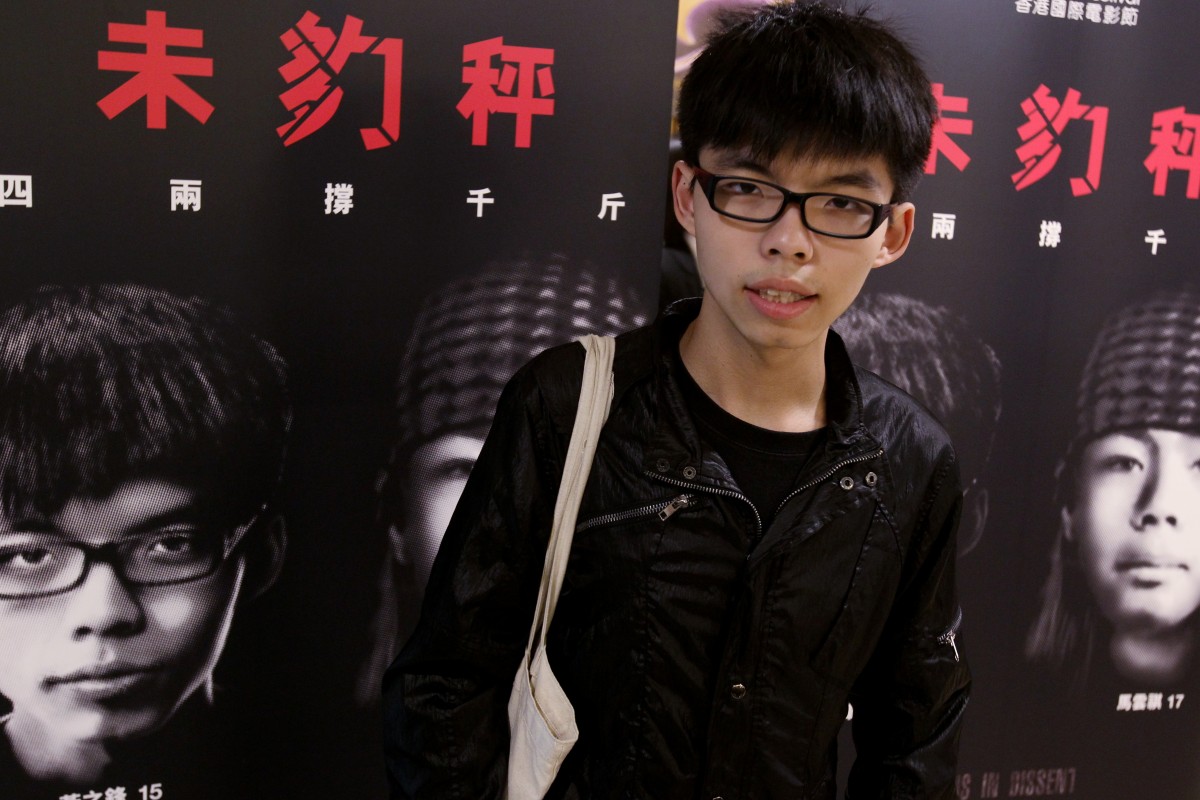
Lessons in Dissent makes sure no one will ever forget anti-national education protests
Lessons in Dissent is a British filmmaker's documentary about the Scholarism protest through the eyes of its two teenaged leaders
 Scholarism convenor Joshua Wong was at the centre of the anti-national education protests.
Scholarism convenor Joshua Wong was at the centre of the anti-national education protests.Special is the adjective student activist Joshua Wong uses to describe how he feels after he first viewed Lessons in Dissent - a documentary about him.
"I was sitting at the front area of the cinema," Joshua says. The 17-year-old was looking at himself, aged 14 or 15, on the screen. "I still find it hard to believe the determination I had, and the growth I went through during the whole anti-national education saga," he says.
"It's a documentary that chronicles the changes in Hong Kong in the past few years, as well as changes in me."
Directed by British filmmaker Matthew Torne, Lessons in Dissent was screened at the recent Hong Kong International Film Festival. The film follows two young activists, Ma Jai and Joshua, and their uphill battle in pursuit of a transparent democracy and fairer society for Hong Kong.
However, a documentary on two youngsters hasn't always been the plan for Torne, who initially only wanted to make a film to highlight Hong Kong's unfair and overly complicated voting system.
But then "things had changed, and the movement took over", Torne says, referring to the anti-national education protest, which took place in the summer of 2012. The curriculum involved general civics and a class on appreciating the mainland, but opponents saw it as a kind of brainwashing. The protest escalated, and even became a sit-in outside government headquarters that lasted 10 days and drew hundreds of thousands of people. In the end, the government backed down.
At that time, Torne took notice of both Jai and Joshua, realising they each had a story to tell. While Jai, who dropped out of secondary school at age 14, has always been radical, Joshua started out saying he would not participate in any form of civil disobedience. As the anti-national-education storm grew, he found himself at the centre of a student-led group called Scholarism.
To Torne, the common message and vision of the two youngsters is as fascinating as the contrast between them. But it goes further: Torne became concerned about the way society measures the success of youngsters.
"Kids are getting such bad press, not just in Hong Kong but around the world," he says. "They are told that they should be studying, and a good kid is someone who studies all the time. I think these kids showed they are mature, clever and passionate, and their voice deserves to be listened to."
Torne says he has always been a big fan of Hong Kong. He used to tag along with his father on business trips to China that usually included stops in Hong Kong.
His return in 2002 - the year Hongkongers took to the streets to protest against Article 23 - inspired him later to do a master's degree that looked at Hong Kong politics. His peers thought it was absurd. "Everyone said: 'Why do you want to write about Hong Kong? Study the real China,'" he recalls.
Torne admits a love for Hong Kong movies, especially those made by John Woo. "Often Woo's films would be about a triad guy fighting other triads, or police fighting triads. But essentially, it's about bullying, one guy standing up against the bully," says Torne.
"Hong Kong should be standing up against the big bully in Zhongnanhai," he adds, referring to the central government's headquarters in Beijing.
Why the title? "Many people say these kids should be in school, having lessons," says Torne. "But no, these kids are providing Hong Kong with a lesson." A lesson in dissent.